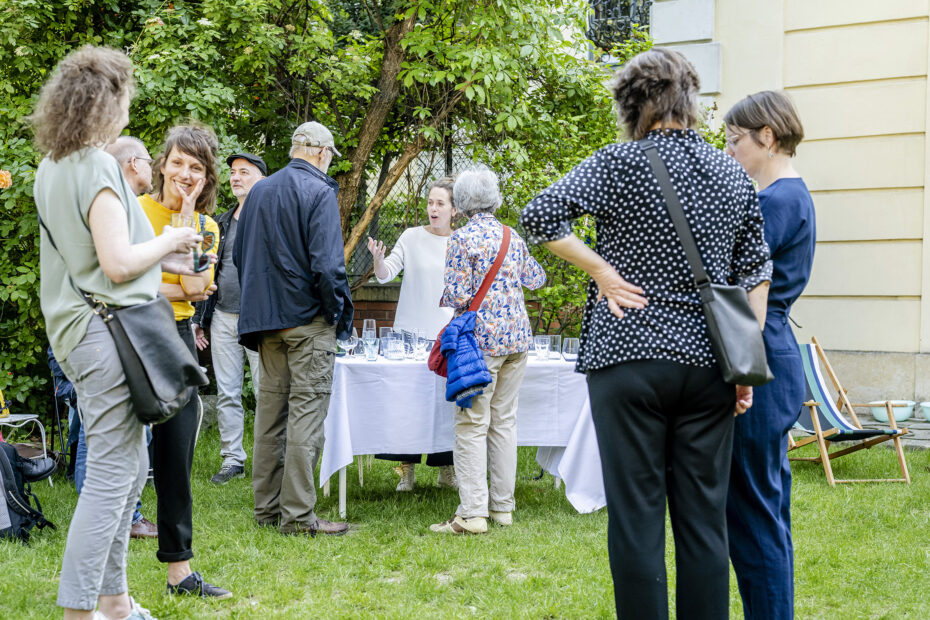With the Open Day at the Volkskundemuseum in Vienna the event series SHARING WATER came to an end on May 25, 2023. The Open Day was an invitation to the public to participate, play, get informed, discuss and co-create what fair and sustainable sharing of water entailed.
A variety of actors presented projects and offers on water, ecology and global distributive justice. Among others, UniNEtZ, University of Natural Resources and Applied Life Sciences Vienna (BOKU), the Permanent Mission of Switzerland to the OSCE and the UN, WeltTellerFeld (Bread for the World), the University of Applied Arts and Queer Museum Vienna were present. Starting at 6.30 p.m., a participatory discussion event with lawyer Michaela Krömer addressed the question of a legal status for bodies of water.
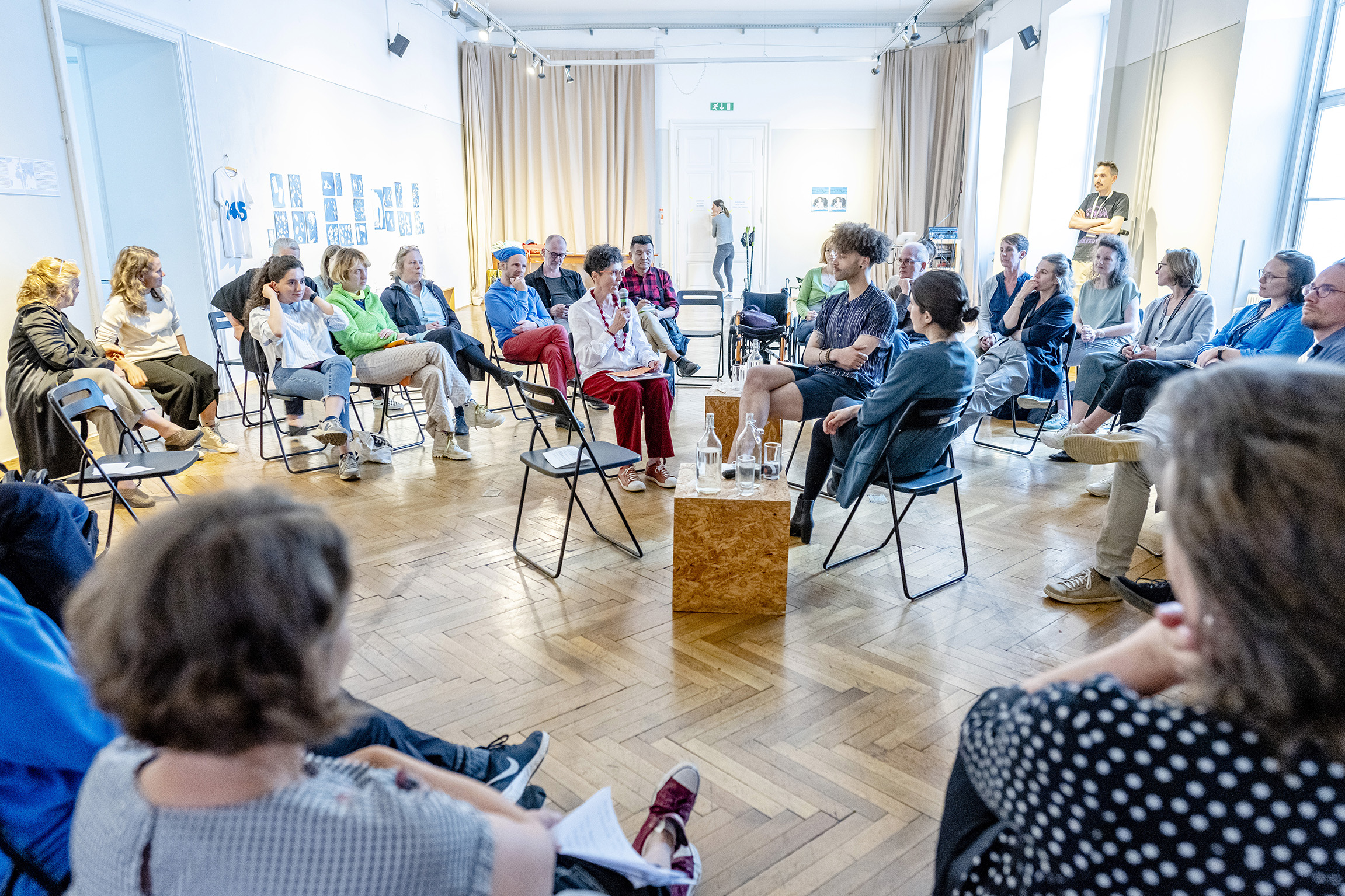
How do we share waters with different human stakeholders and intergovernmentally? How can we better learn and legally anchor sharing with the more-that-human world? The day’s program was guided by these key questions, and explored them from both a local and global perspective.
The Volkskunde Museum itself guided through its own exhibitions and projects and presented the connection between water or absence of water in everyday life and history. The connections between water and waste, migration, transport and infrastructure but also to folkloric-cultural-historical topics were made.
Local Initiatives
Water bodies in the city were the topic of concern of a guided tour in neighboring Josefstadt, hosted by the Volkskundemuseum, UniNEtZ and the University of Natural Resources and Applied Life Sciences.
The Schwimmverein Donaukanal drew attention to urban waters as a hydro-social space, such as the hitherto little-used Vienna Danube Canal. The “Schwimmverein” organizes communal swimming in the Canal and fosters exchange on shared liquid urban spaces.
A performance in the sandbox of the Schönbornpark by the ranger of the National Park Seewinkel and a culture mediator of the Volkskundemuseum informed about the currently volatile situation of the Neusiedlersee, which is threatened by drying up due to climate change.
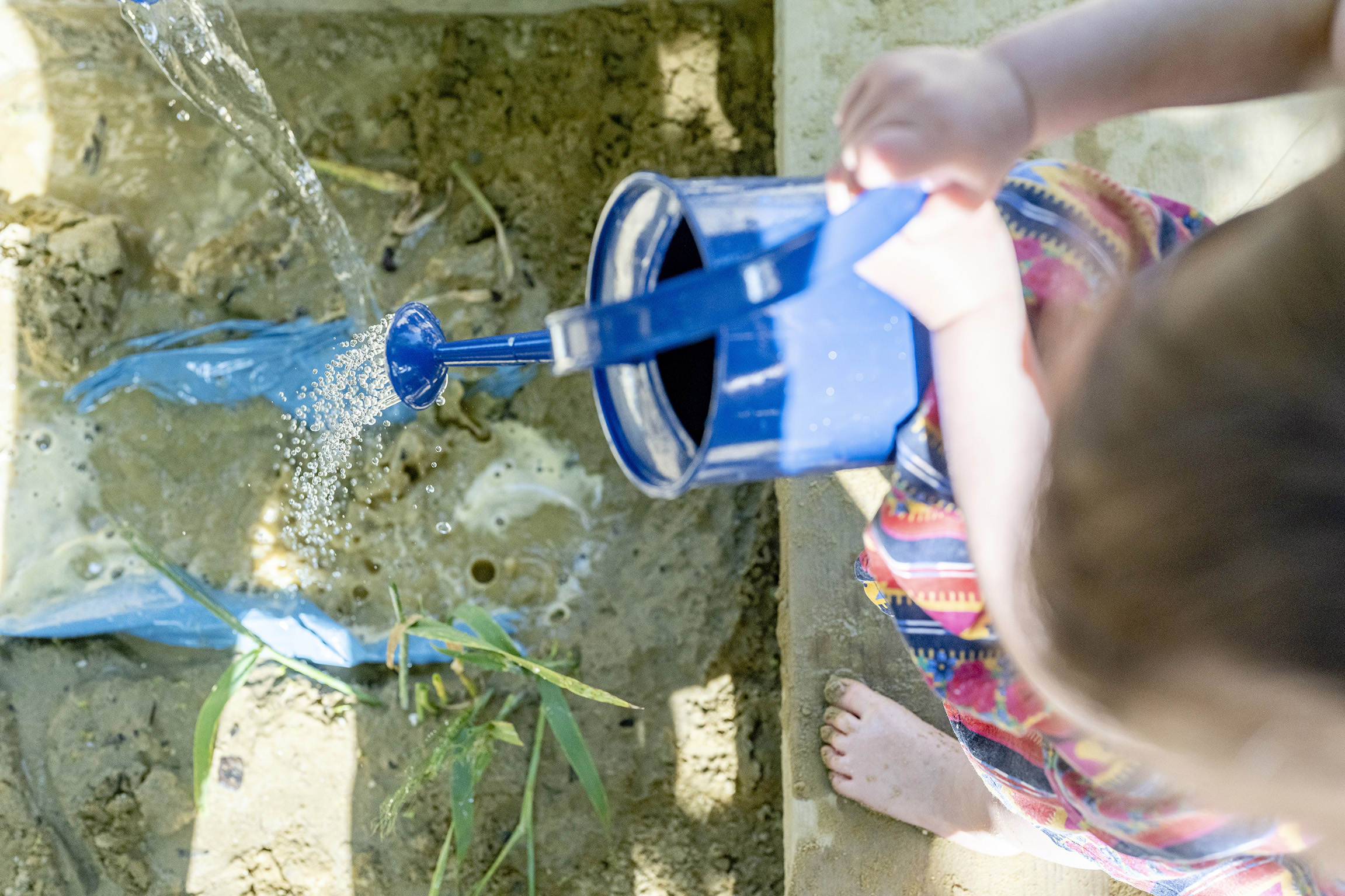
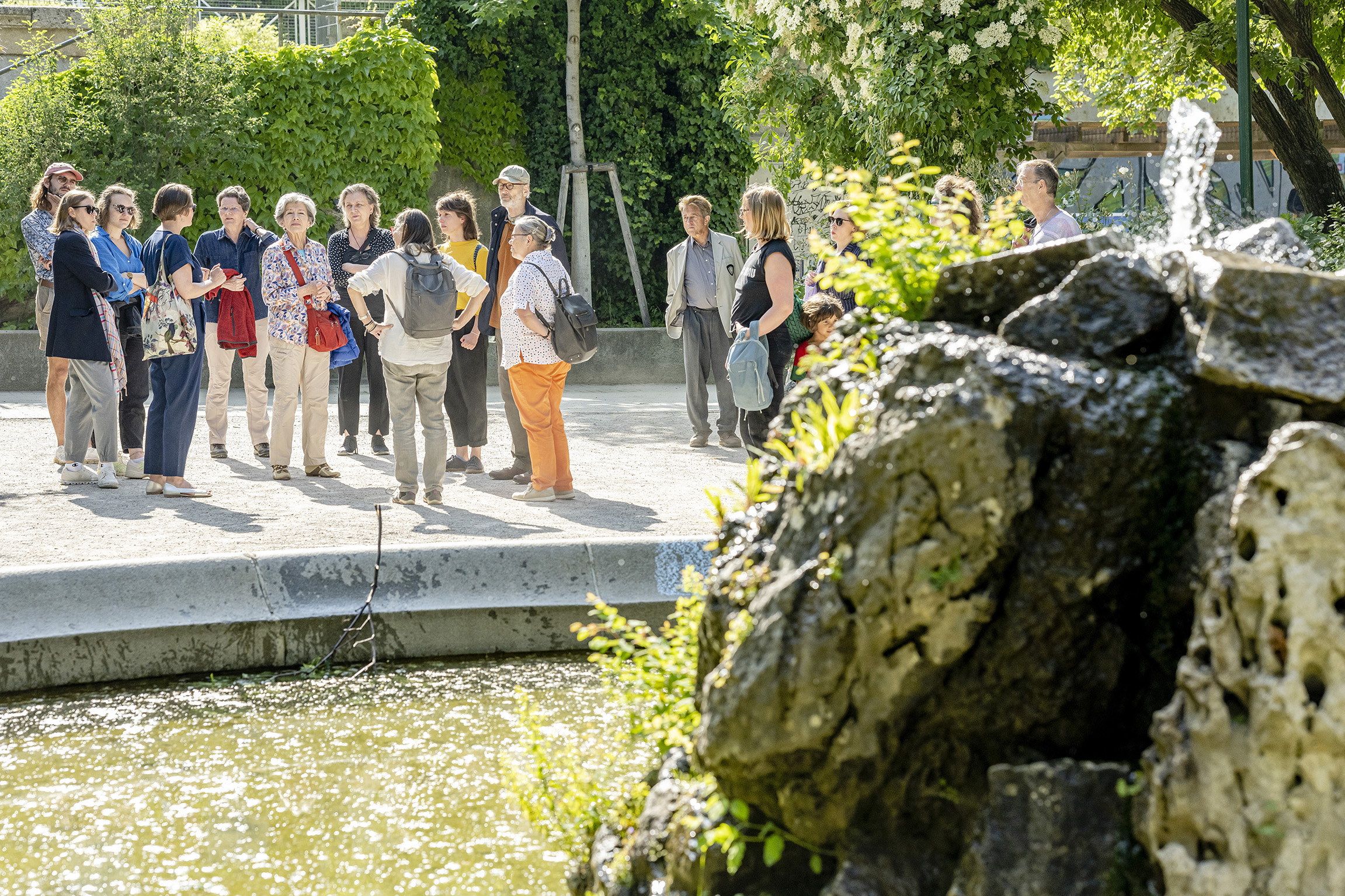
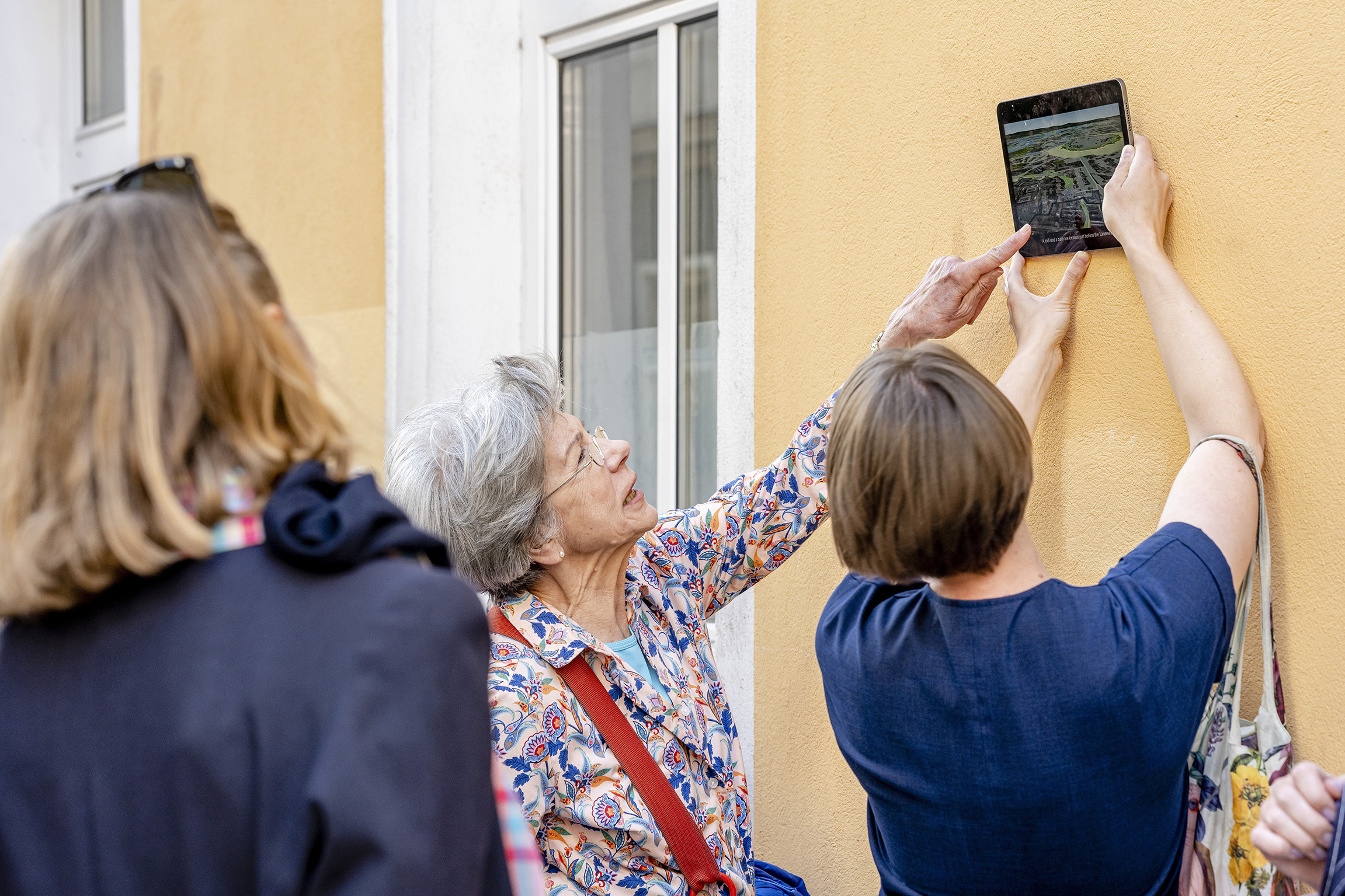
Global Perspectives
Global perspectives on water justice was the main topic in the garden and exhibition spaces of the museum. The artistic work of students of the University of Applied Arts Vienna staged a change of perspective for the visitors: “Narratives of Water” put the water realities of Mexico City and Vienna in relation to each other in a surprising way.
Two dialogue stations with Swiss and Austrian experts provided information on the volatile work of mediation in international water conflicts and humanitarian assistance in water crises. Peace building work was the focus of Leo Hurni (Swiss Delegation of OSCE and UN in Vienna, Blue Peace Initiative, ) and Andreas Papp (consultant, PeaceEye).
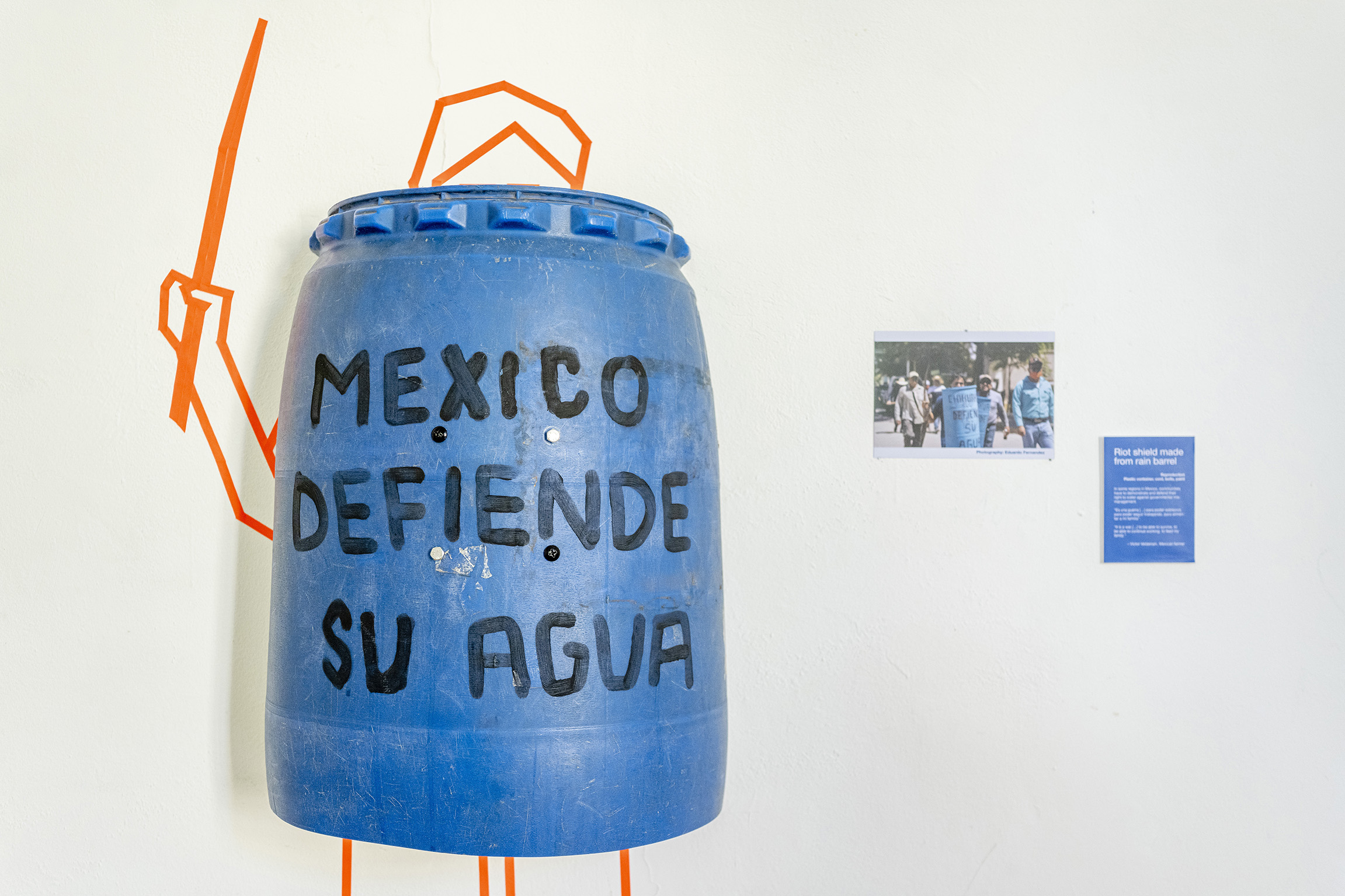
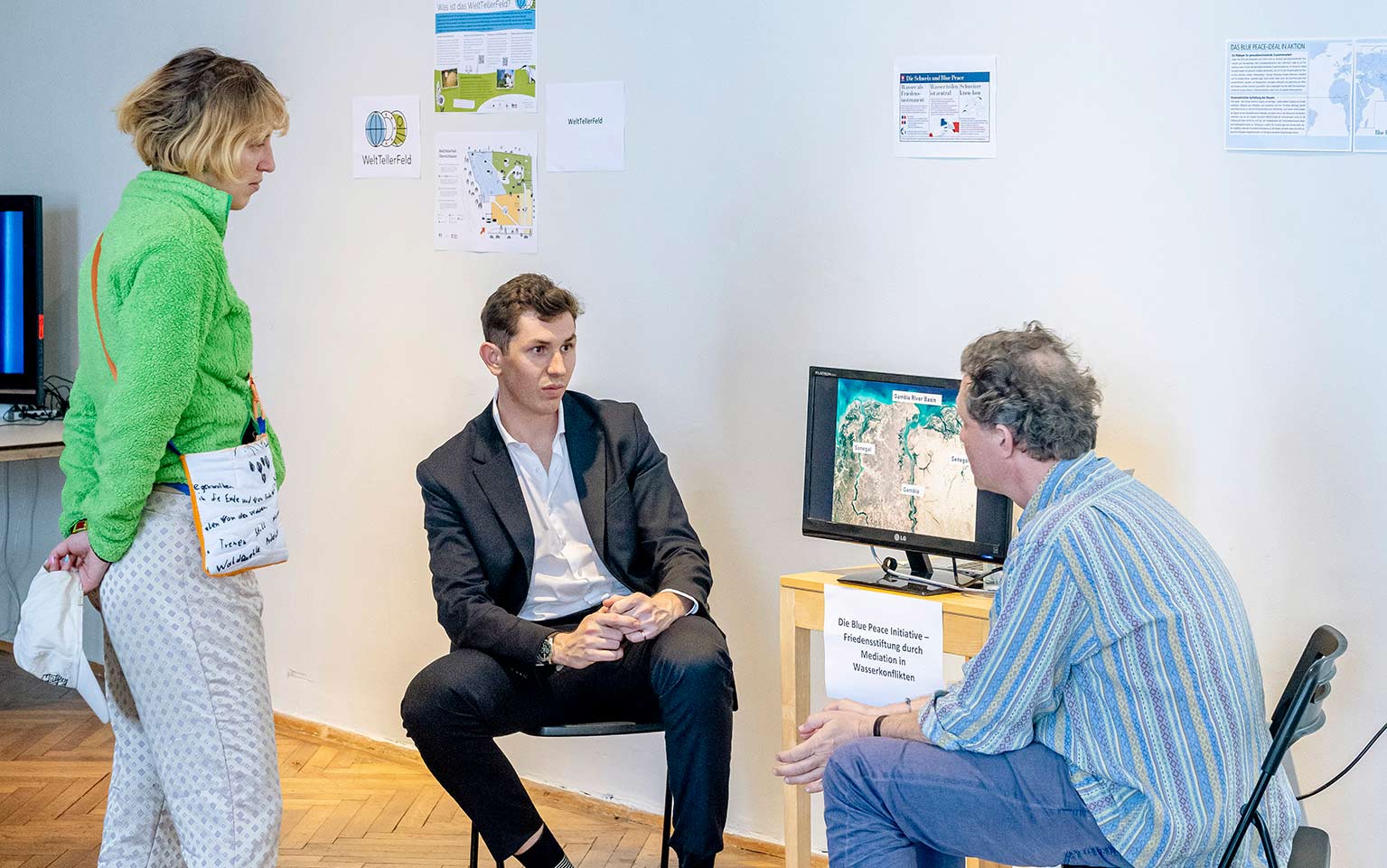
Basic information on the global context of water consumption, water scarcity and water conflicts was provided by the participatory discussion game Blue Gold, which was used especially by school classes. The game is an open source game that was expanded and redesigned by One Body of Water and the design office Baustelle in the course of the event series.
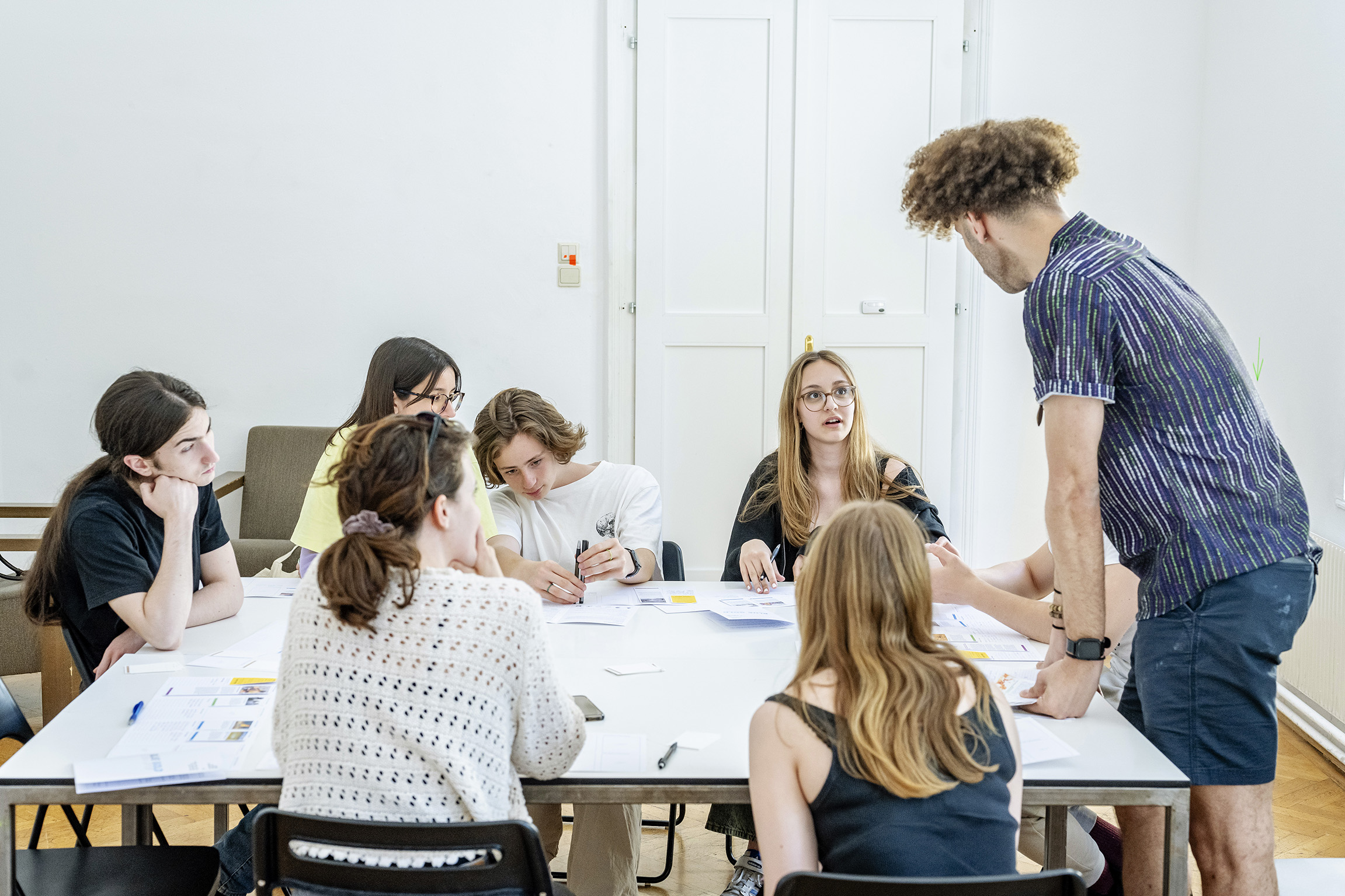
How does our consumption behavior influence the global water balance and the use of water and water bodies worldwide? How much water do we consume indirectly through the food, goods and clothing we use?
Students of the Sir Karl Popper School Vienna had researched and designed on this topic in a workshop with One Body of Water, and presented their work in the museum. The deep blue cyanotypes and accompanying posters provided information about the water consumption of coffee, avocados, gum arabic, T-shirts (among others).
“Anti Fast Fashion”, the dialogue station of scientists of the textile archaeology of the Natural History Museum Vienna, showed samples of present and reconstructed prehistoric textiles and informed about the water resource consumption in the production of the textiles.
Finally, the Free Genie water tasting station in the museum’s garden invited visitors to engage with the marketing strategies of the international bottled water industry.
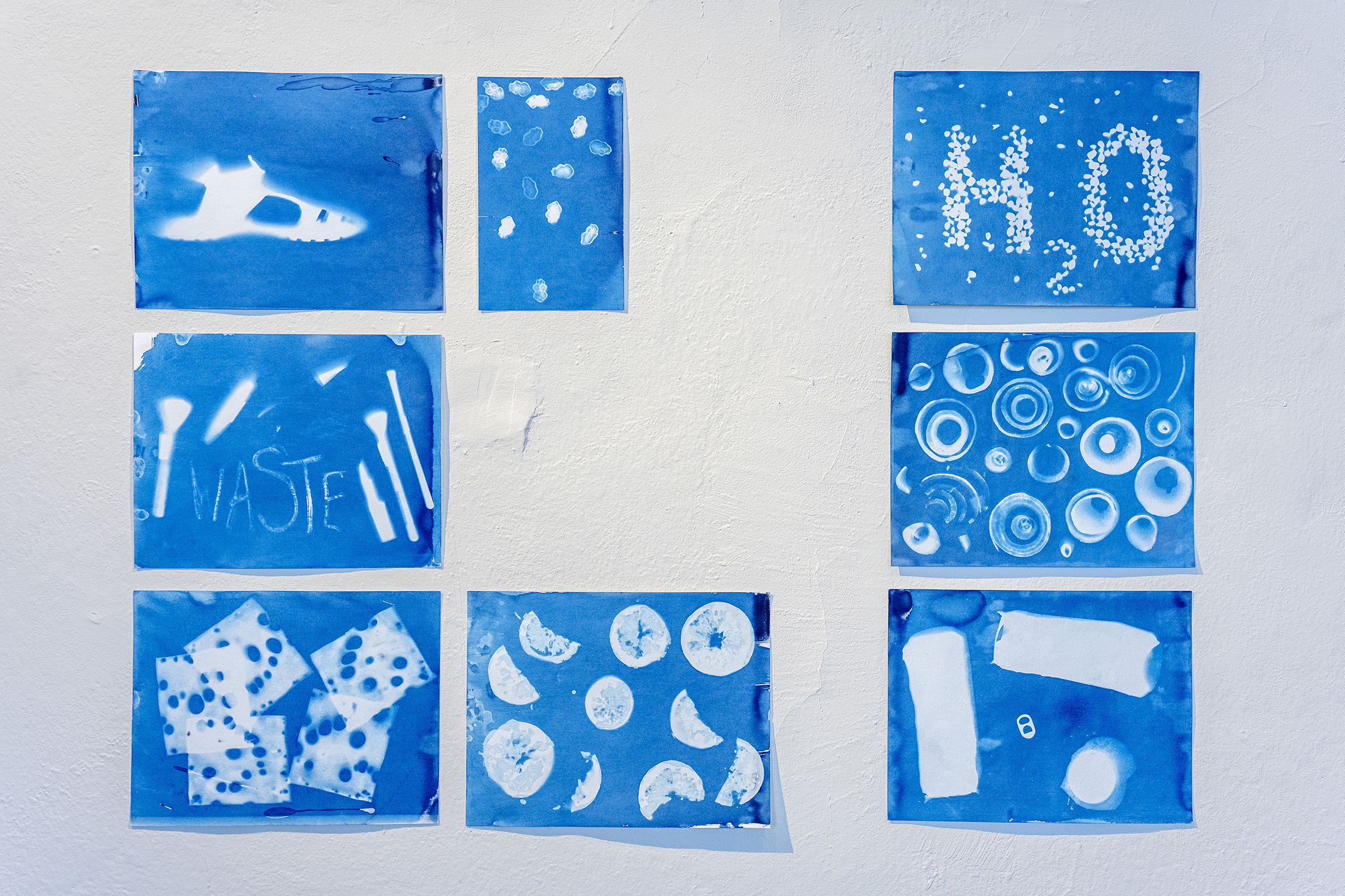
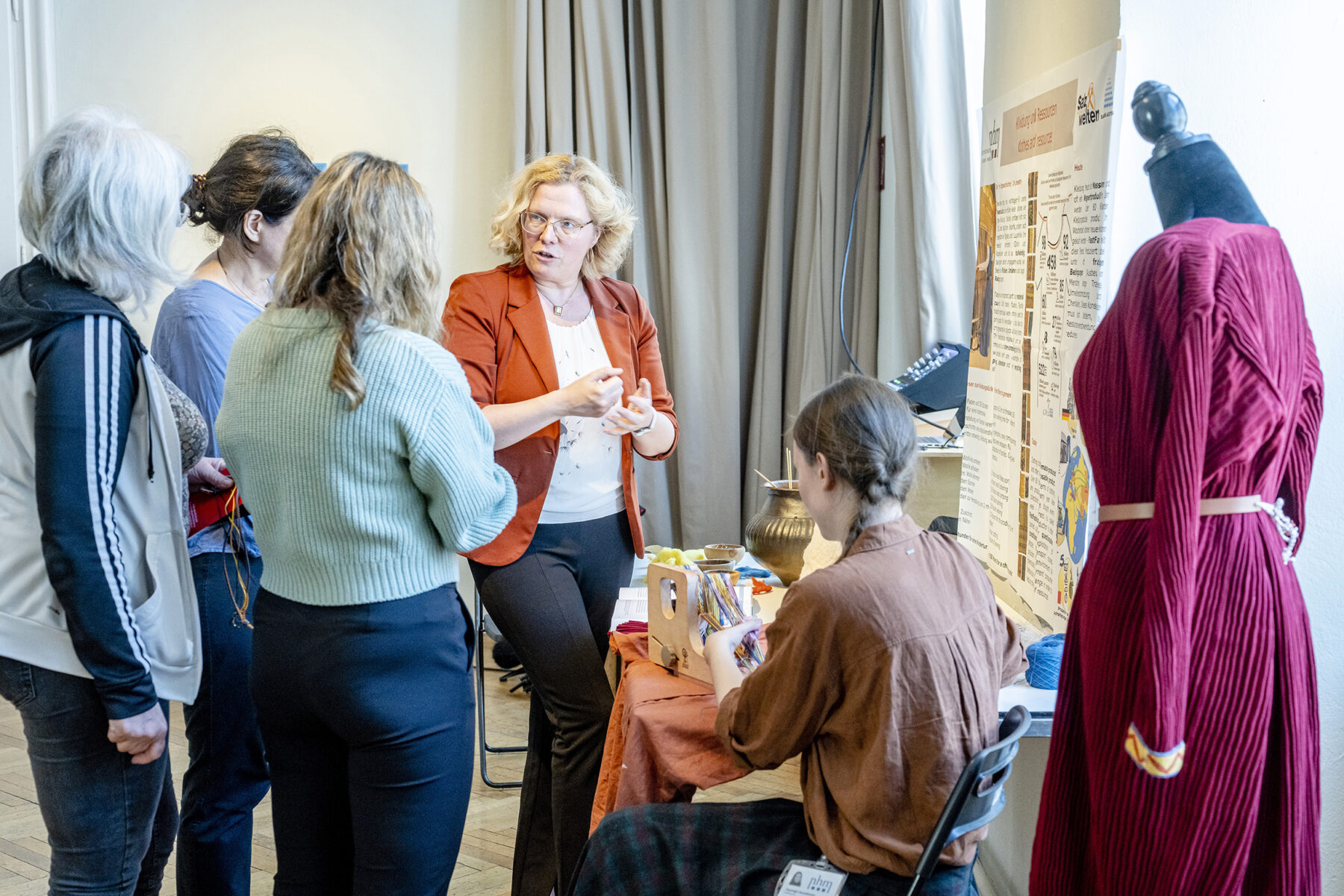
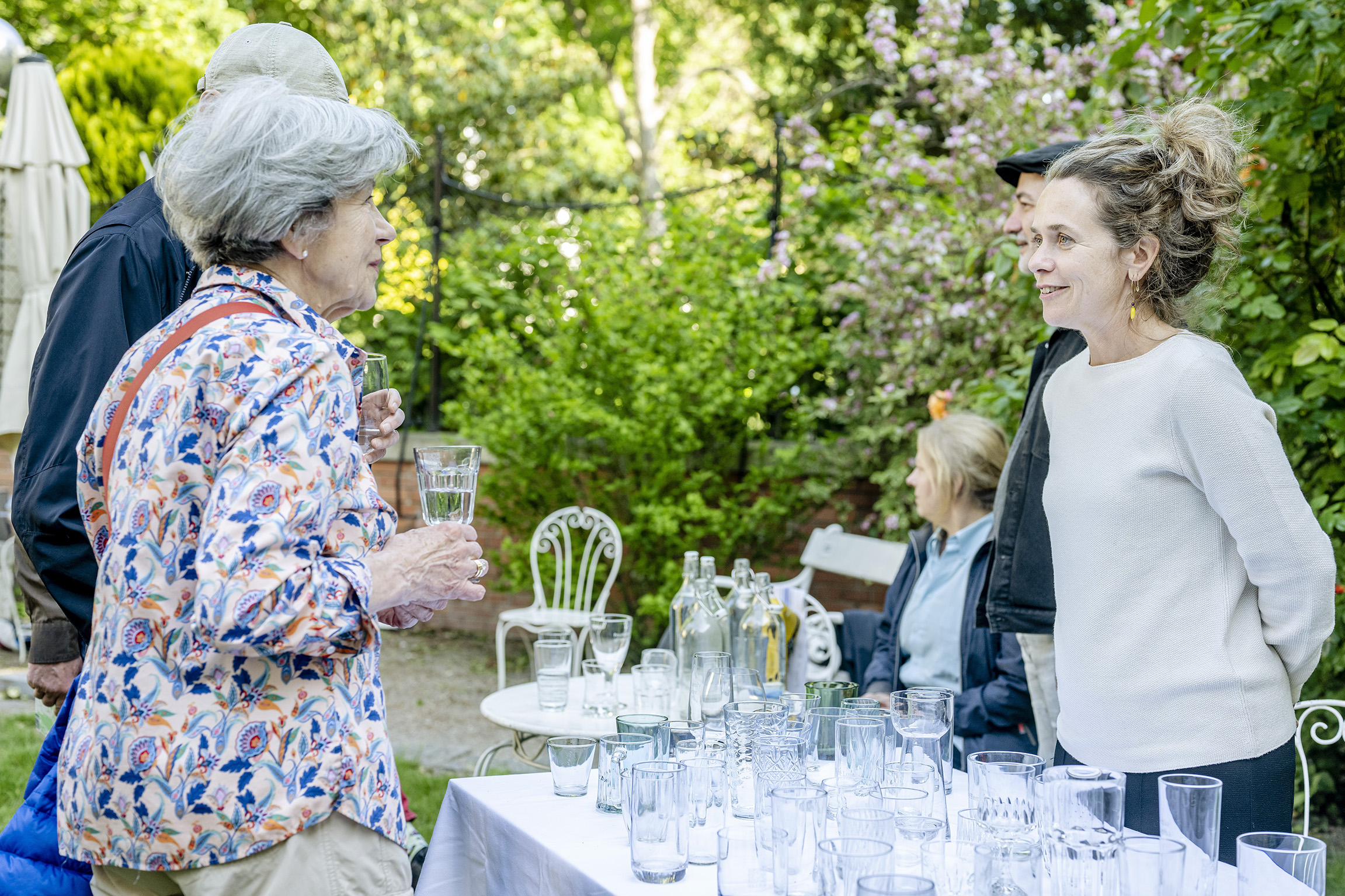
Evening Program: Fishbowl Talk on Legal Standing for Water Bodies
Sharing water and waters with the more-than-human world was the evening’s program item starting at 6:30 p.m. – a lecture followed by a fishbowl discussion with lawyer Michaela Krömer on the visionary approach to granting legal status to waters.
The evening program was heralded by the loud blowing of three triton conchs – the spiral-shaped shells of deep-sea organisms, which in Hindu and Buddhist contexts are used as musical instruments in temples and, among other things, draw attention to impending extraordinary weather events.
The artistic intervention “Temple Conch Organ” with three wind players had been orchestrated by Stefan Fraunberger, and gave the signal to gather for the conversation.
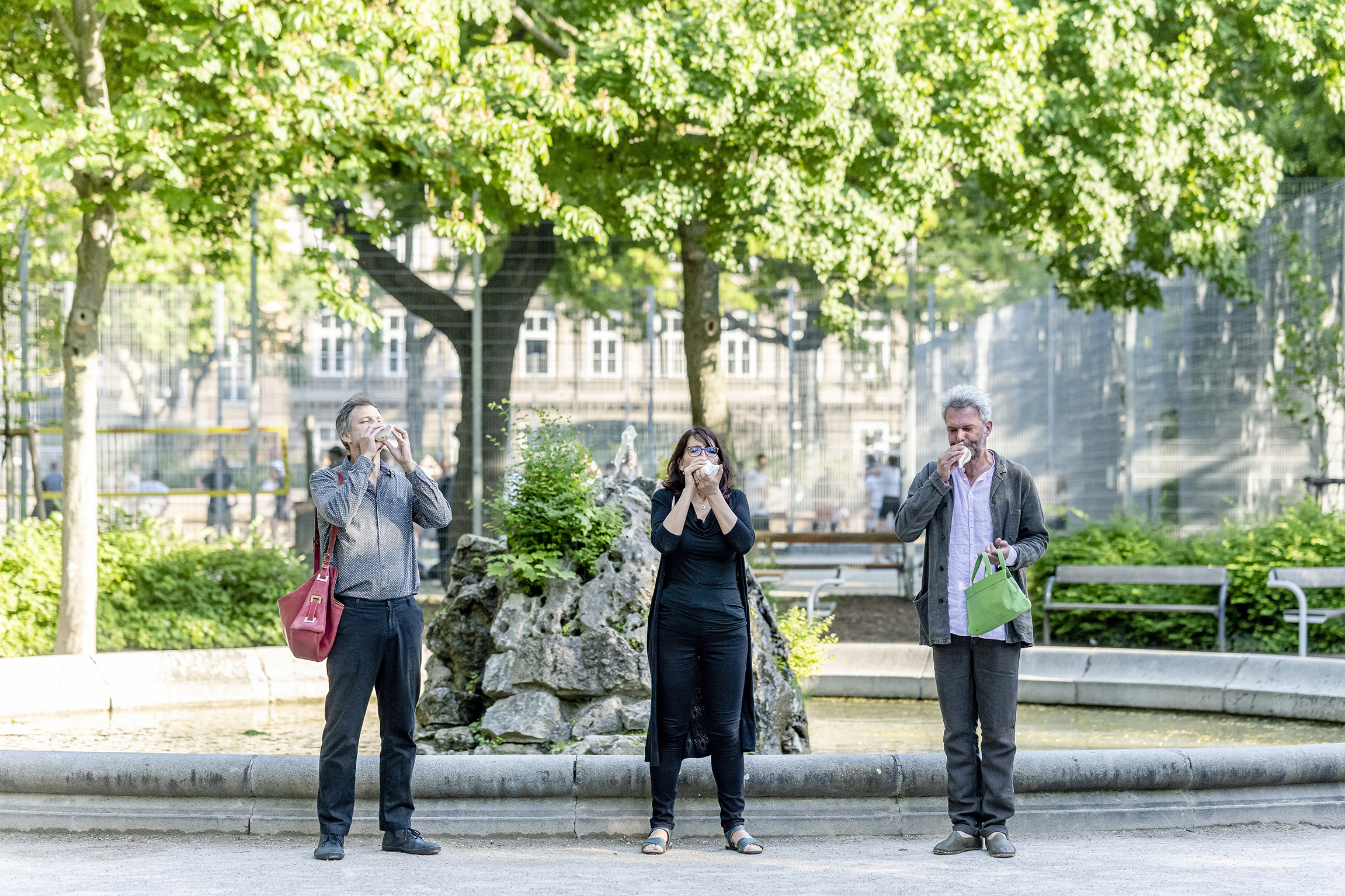
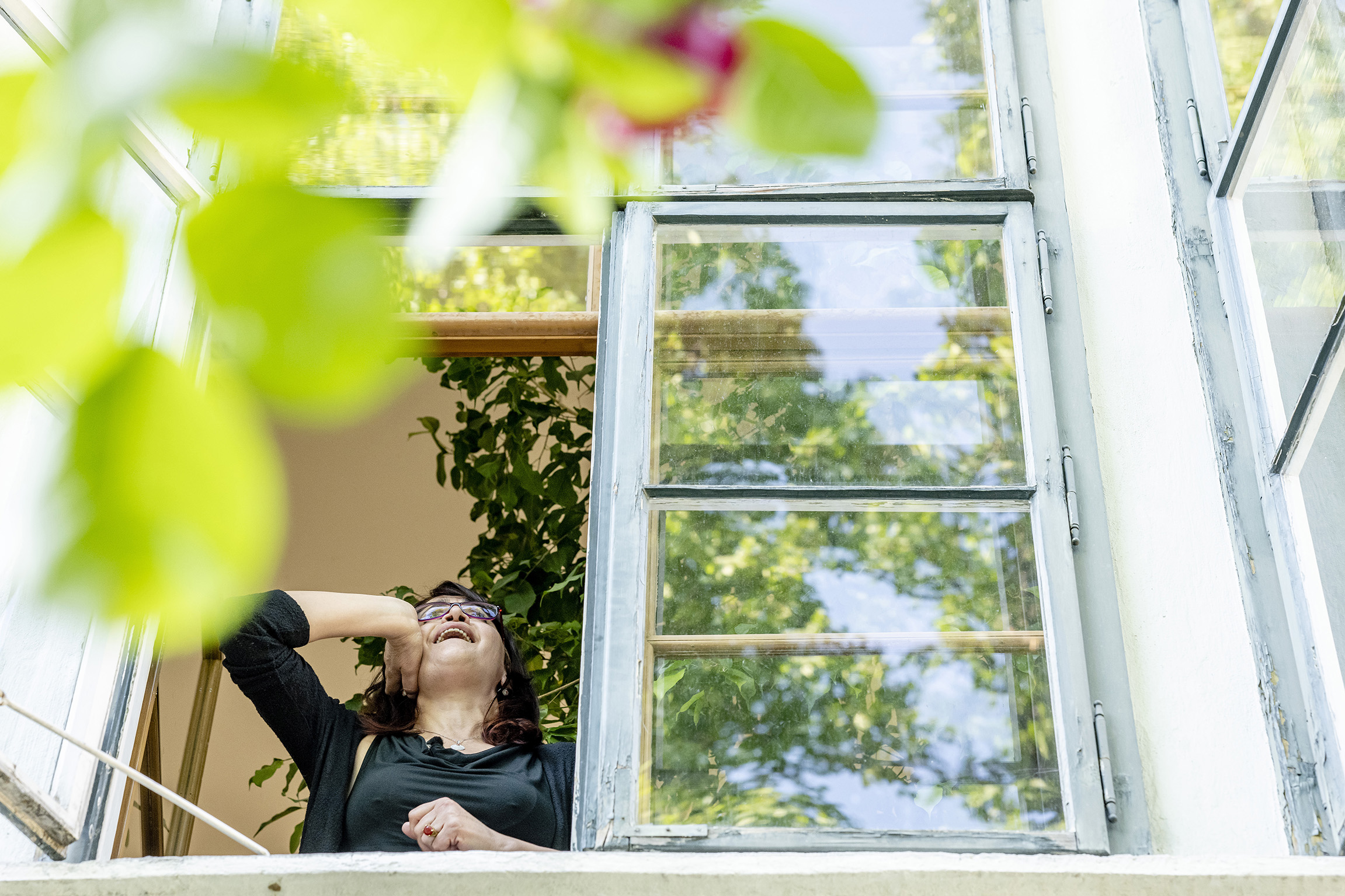
The guests of the evening were welcomed by Magdalena Puchberger (Volkskunde Museum), Barbara Schedler Fischer (envoy of the Swiss Embassy in Austria) and Regina Hügli (initiator of the event series).
The evening’s speaker, attorney Michaela Krömer, then introduced the complex topic of giving legal standing to water wodies and ecosystems. She outlined what the approach of turning waters into legal subjects entails and in what ways it has already been implemented in some countries. In a fishbowl setting, there was room for questions, reactions and further thinking about this approach. The fishbowl discussion was moderated by Judith Stemerdink-Herret and Lisa Rombach.
Participants of the Innovation Hub who had already dealt with this approach opened the discussion, namely groundwater expert Christina Formanek, Daniel Bayer, climate ranger of the National Park Seewinkel, and international water expert Klaus Lanz (Switzerland).
The discussion revealed that the existing legal situation for water protection in Austria may not require this approach to be implemented in Austria – or Switzerland. But it became clear as well that the confrontation and exchange on the core idea of this approach can foster a change in social values.
By equating human interests of use and the interests of the water bodies and their diverse inhabitants on a legal level, an anthropocentric world view is abandoned in favor of a more balanced view. A respectful treatment of water bodies on an equal footing, whatever the legal basis for this may be, is huge step towards a paradigm shift essential to our survival on this planet.
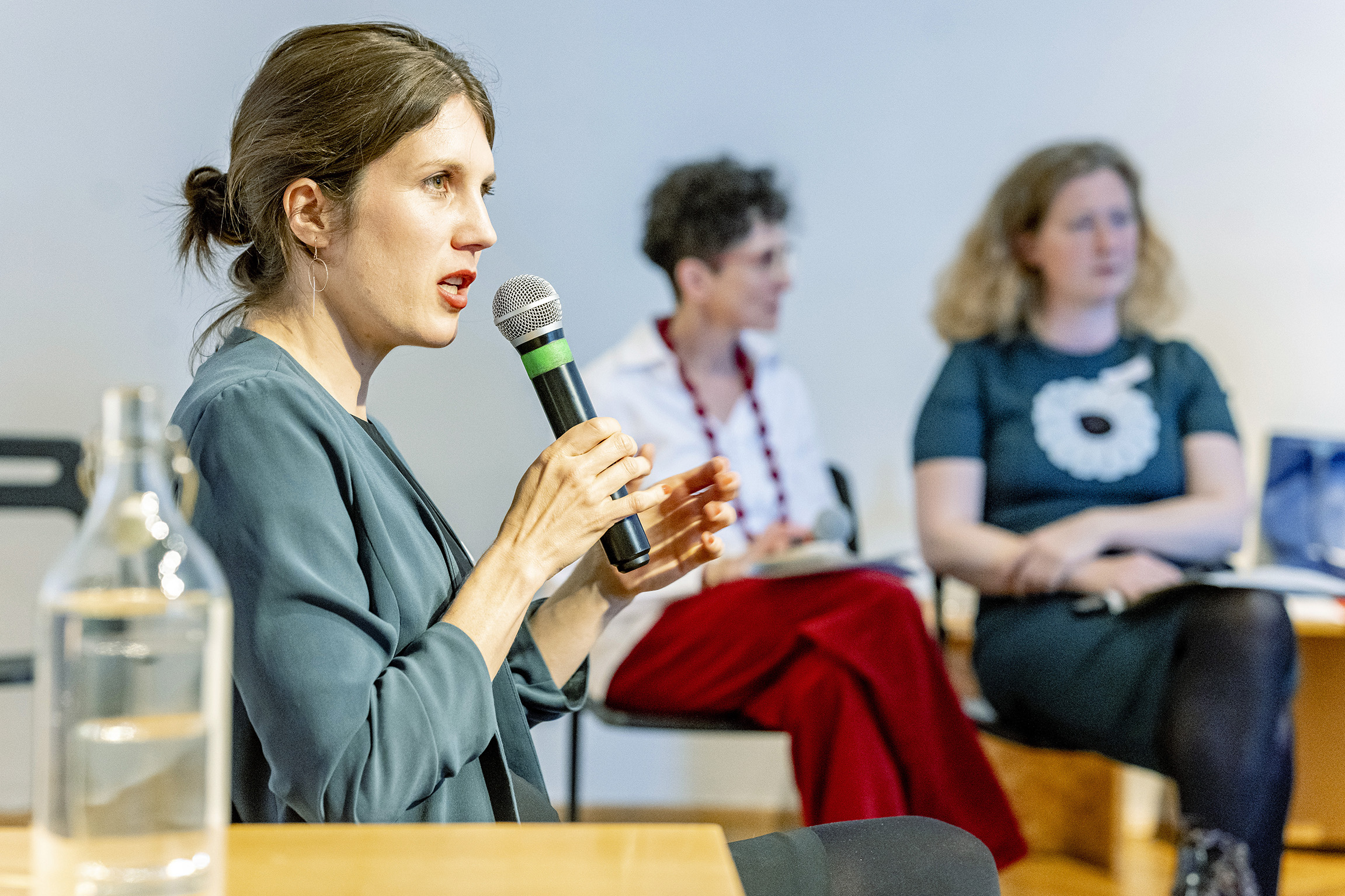
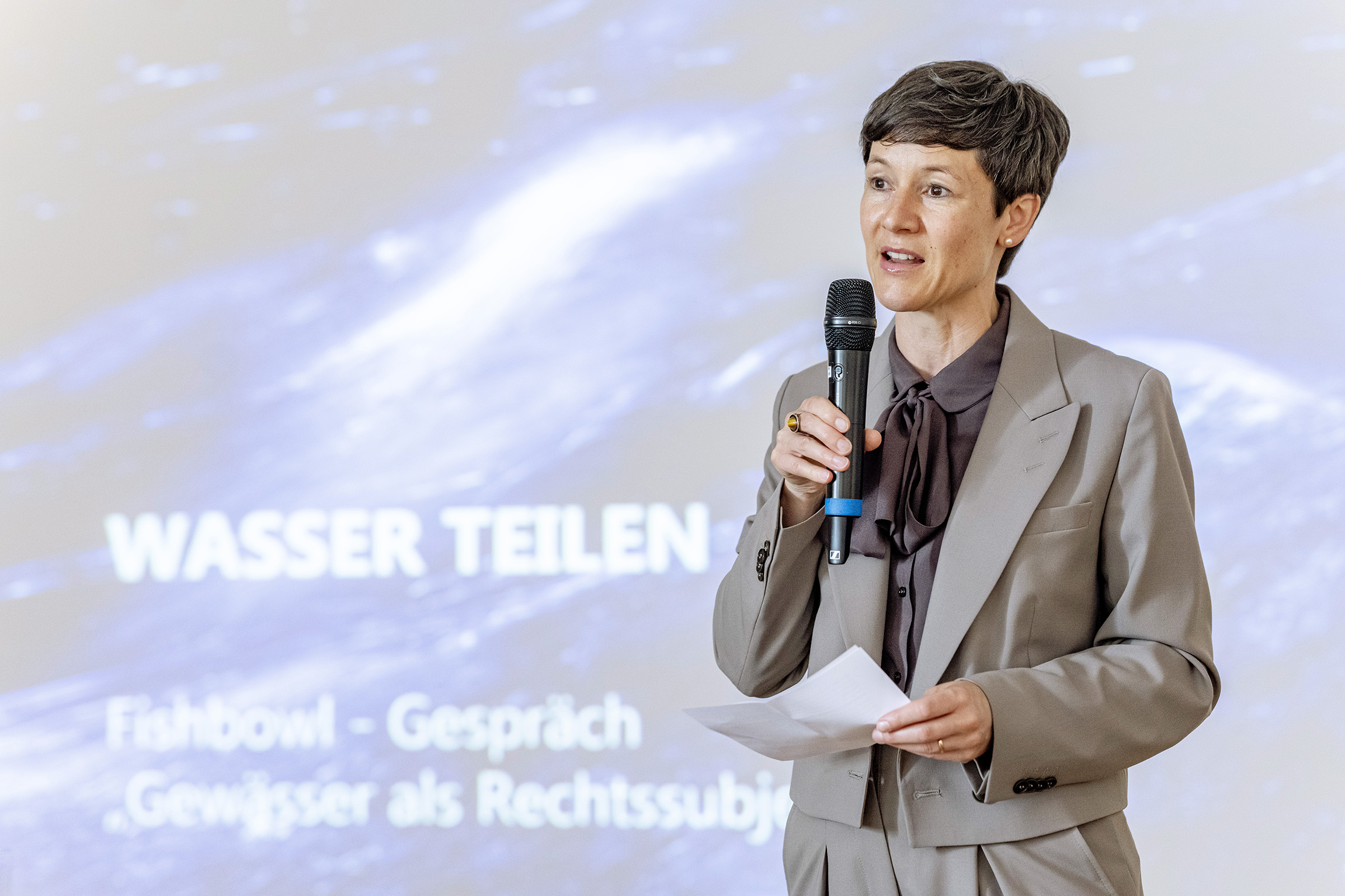
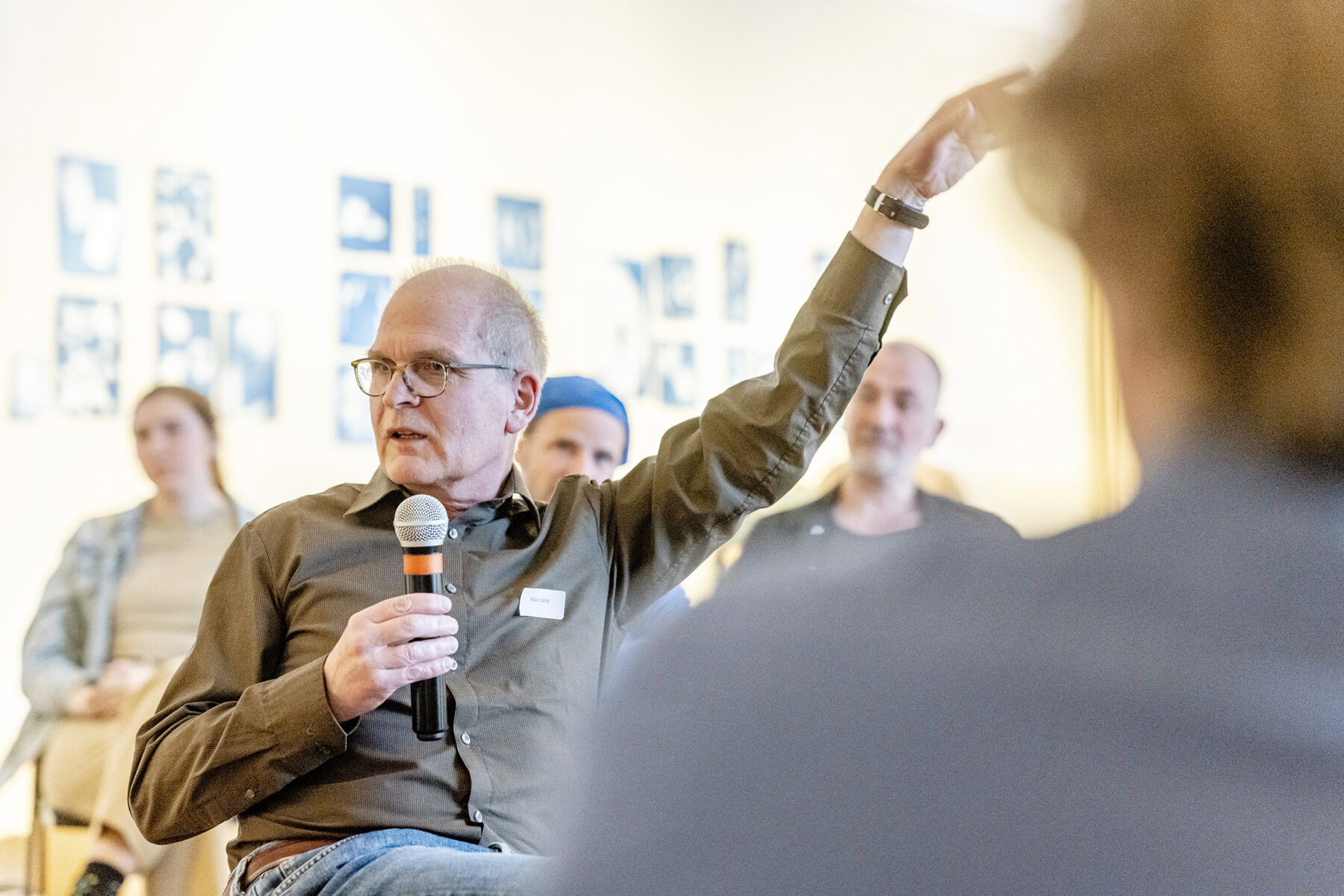
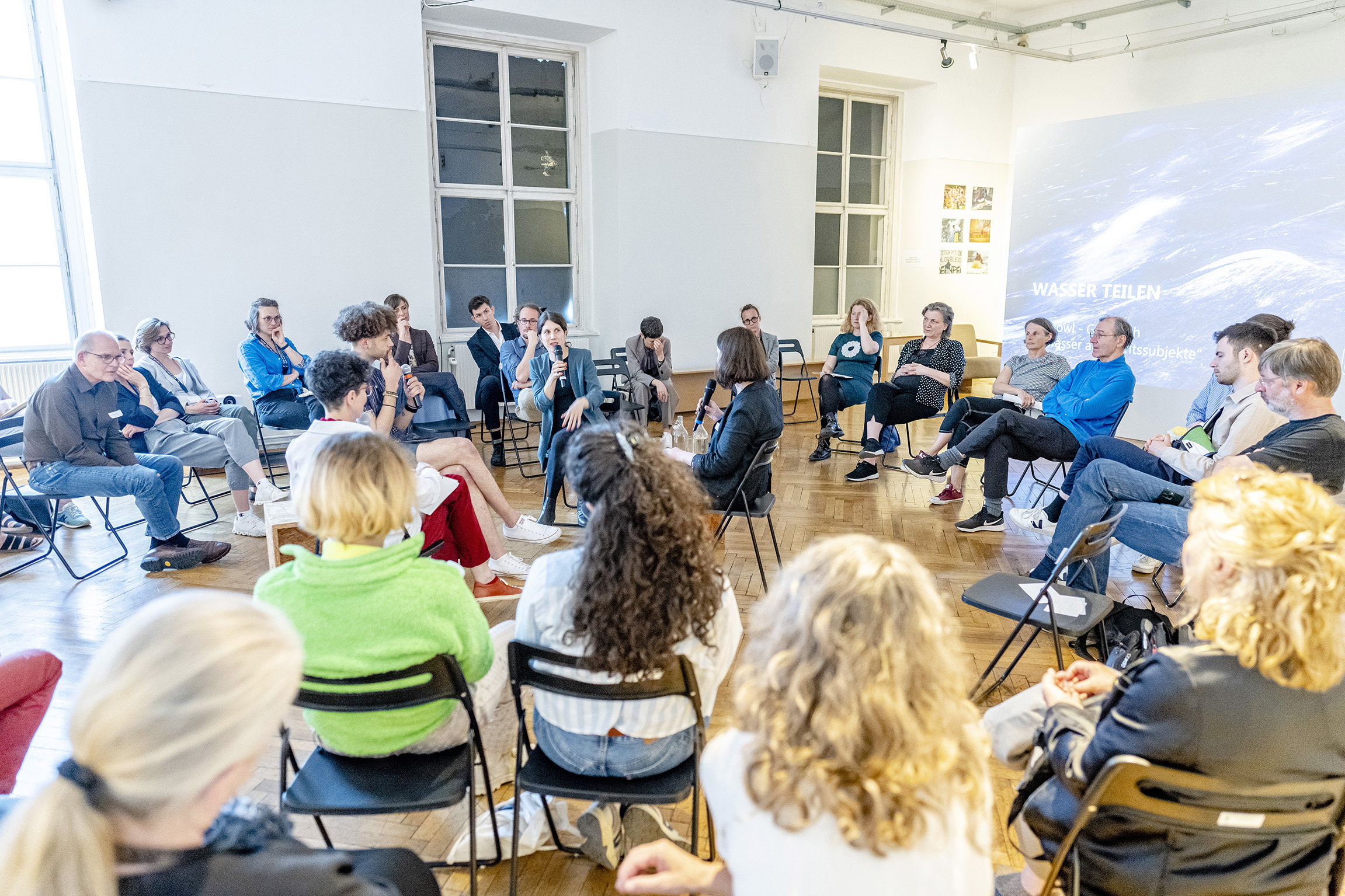
The evening’s discussion continued informally in the garden of the Volkskundemuseum with a buffet with Swiss cheese and wine offered by the Swiss Embassy in Austria. We thank the Swiss Embassy for this wonderful support!
The Open Day was the concluding event of the series SHARING WATER in Vienna, which was dedicated to the topic of sharing water in a fair and sustainable way. The series was conceived and organized by Regina Hügli, One Body of Water, in cooperation with the Natural History Museum, the Volkskundemuseum Vienna and the University of Applied Arts Vienna. The events were in the context of the SDG programs of the museums, the SDG focus of the Austrian universities (UniNEtZ uninetz.at), as well as the partnership between Austria and Switzerland in the implementation of the 2030 Agenda.
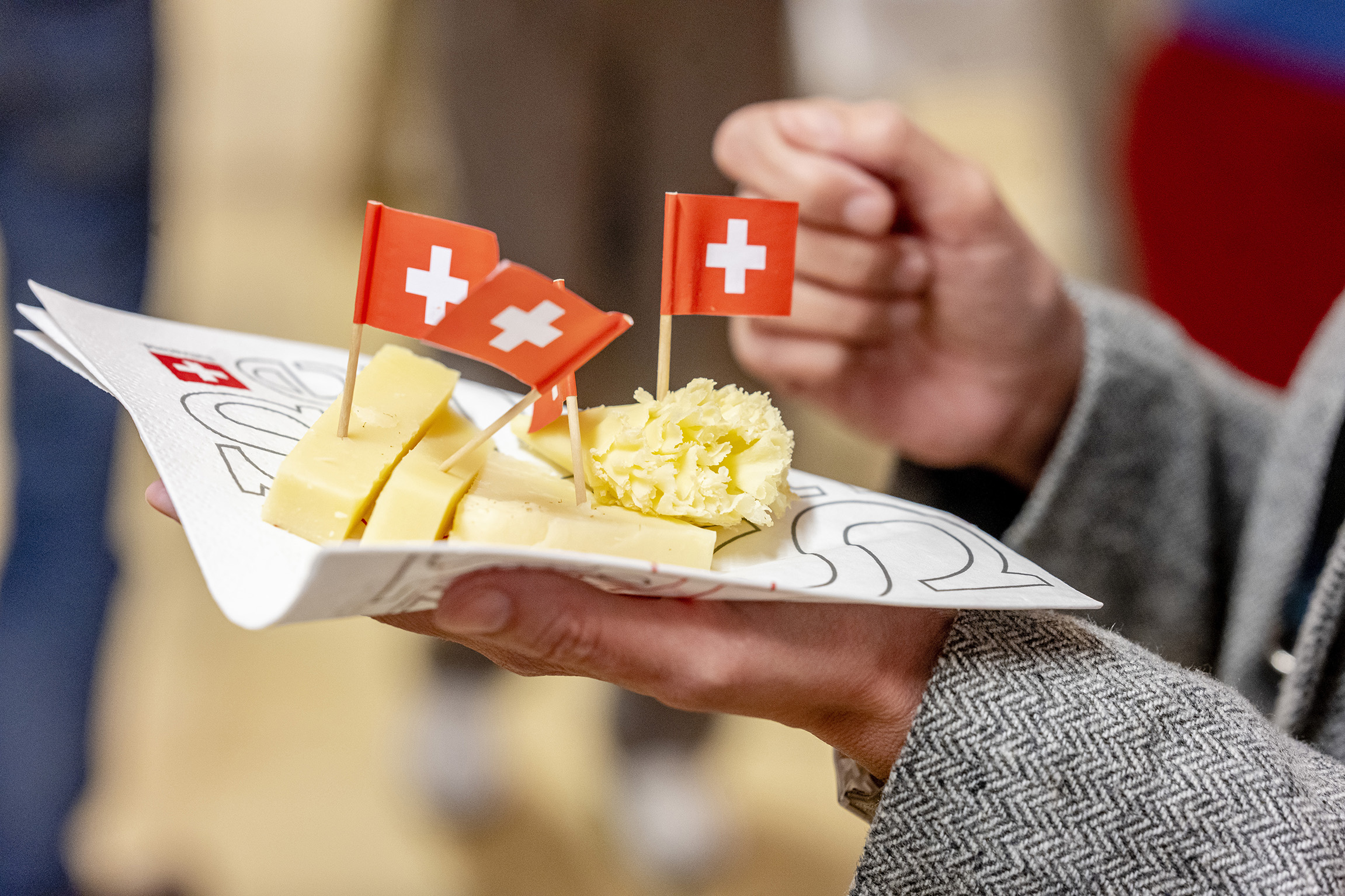
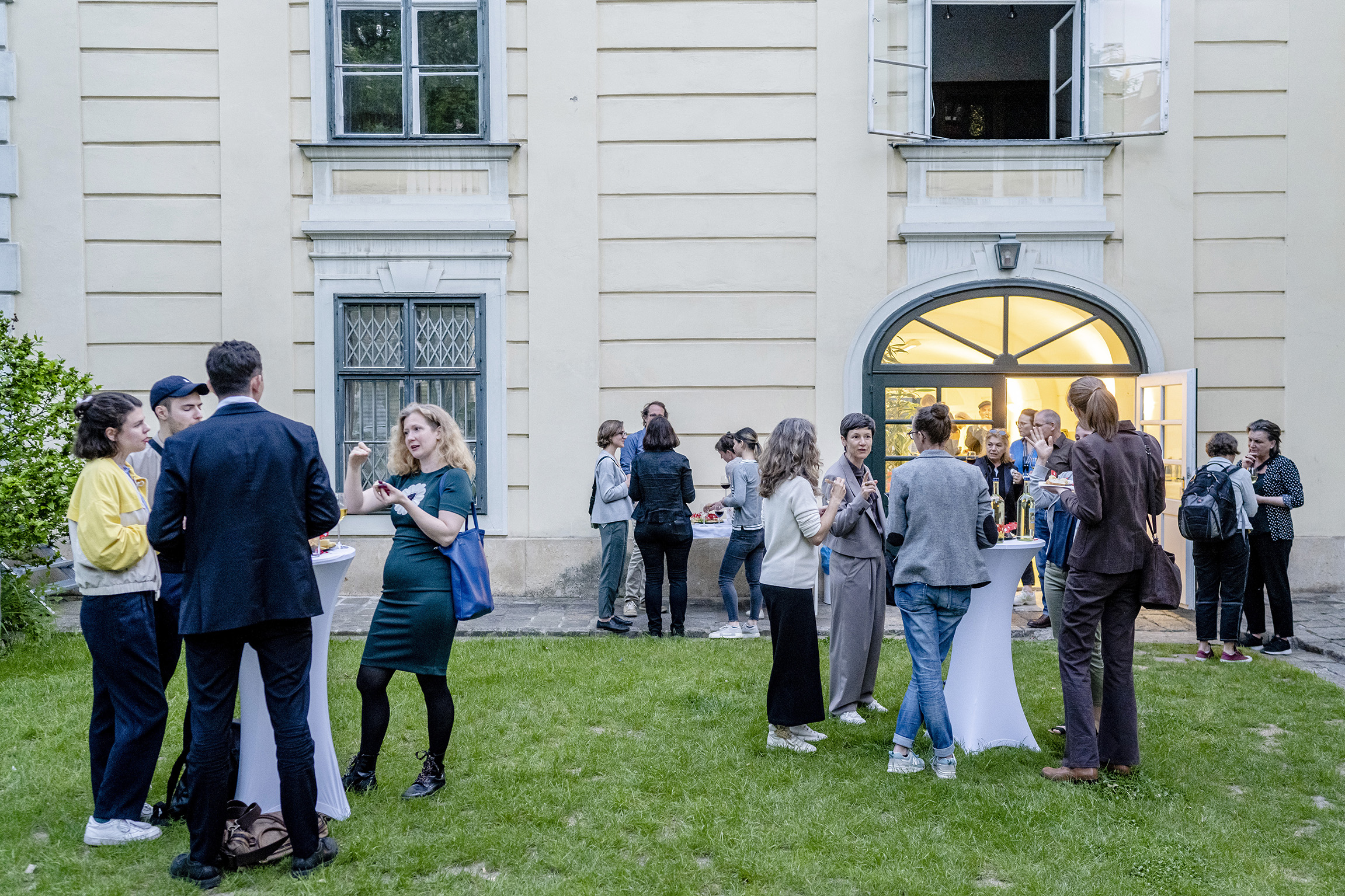
Credit: all photographs on this page are by Kollektiv Fischka / Kramar, Volkskundemuseum Wien, 2023.
